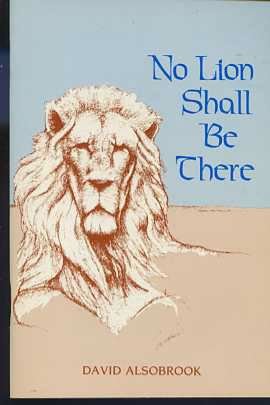
No Lion Shall Be There
"The wilderness and the solitary place shall be glad for them; and the desert shall rejoice, and blossom as the rose." The picture here is that life, "the blossoming," takes place. Isaiah prophesies that the desert, which speaks of barrenness, futility, waste, and in a sense, death, will come to life. Where was man before death entered the world? He was in a garden, a place that blossomed, every green herb, every fruit of every tree was present. This was not only true in the natural but was symbolic of his spiritual experience. He was fruitful. He was in a place of great fellowship with God. He enjoyed communion with his Creator. After man's fall, God spoke to Adam concerning the ground. Up to that time it had been fruitful, but from the fall on it was to bear thorns and thistles (Gen. 3:17-18). Man, who had been in fellowship, was now estranged or separated from God. Isaiah compares this spiritual void to a desert. In Ephesians 2:1 we read: "And you hath he quickened, who were dead in trespasses and sins." The whole human race was dead— deadened. We speak of someone who is apart from Christ as being dead, and of course, in a sense that is true. We think of one who is dead as one who is not operating. For example, a drunkard cannot keep from the bottle, but when he dies he no longer drinks, he ceases to operate, he ceases to function. You could pour whiskey all over him but that would receive no response. But the human spirit, apart from God, DOES still thirst, search and long for the lost fellowship of its Creator. That vacuum within still hungers for God. If the human spirit were actually dead that would not be applicable. But we know that it is true that man does desire for that vacuum to be filled, so instead of saying the human spirit is dead, we should say it is DEADENED, deadened by our sin.

